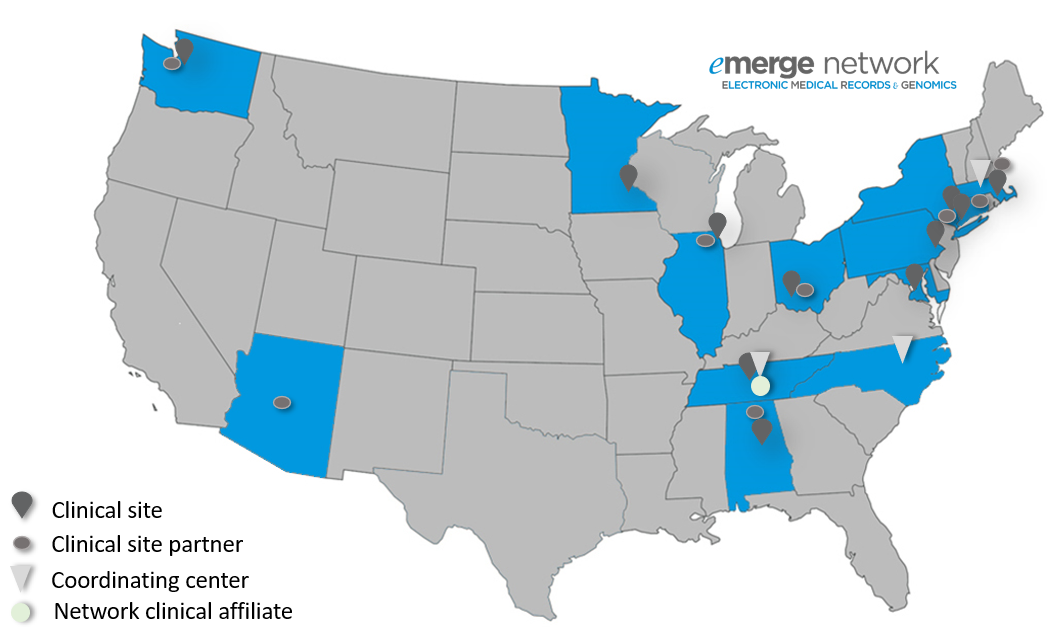eMERGE is a national network organized and funded by the
National Human Genome Research Institute (NHGRI) that combines DNA
biorepositories with electronic medical record (EMR) systems for large
scale, high-throughput genetic research in support of implementing genomic
medicine.

Many factors contribute to risk of a disease. Some of these factors are internal,
like genetics, and others are external, like where someone lives. Over the last several years
researchers have discovered that in addition to one gene being associated with a given
disease (monogenic factors), many genes across your genome can contribute to the development
of a disease (polygenic factors). To learn more about elements that contribute to risk a disease,
click here.
Latest News
Webinar: NIH Grants Process: Walk-Through for Beginners
May 5, 2024 7:47 PM
NOSI: Supporting the Exploration of Cloud in NIH-supported Research
April 4, 2024 4:31 PM
NOITPs are published
April 4, 2024 4:30 PM
eConsult NOFOs released
January 1, 2024 7:19 PM
Research Training at NIH: Upcoming virtual information sessions (Postbac, Grad, Summer, Postdoc)
November 11, 2023 8:34 PM
Informational Webinar on ELSI PARs – 12/11/23 at Noon
November 11, 2023 3:08 PM
Recent Publications
Mosley JD, Shelley JP, Dickson AL, Zanussi J, Kawai VK, et al. Clinical associations with a polygenic predisposition to benign lower white blood cell counts. Nature communications. 2024 Apr 22;15(1):3384.
Vessels T, Strayer N, Lee H, Choi KW, Ruderfer DM. Integrating Electronic Health Records and Polygenic Risk to Identify Genetically Unrelated Comorbidities of Schizophrenia That May Be Modifiable. Biological psychiatry global open science. 2024 May;4(3):100297.
Hui D, Dudek S, Kiryluk K, Walunas TL, Ritchie MD, et al. Risk factors affecting polygenic score performance across diverse cohorts. medRxiv : the preprint server for health sciences. 2024 Apr 10;.


